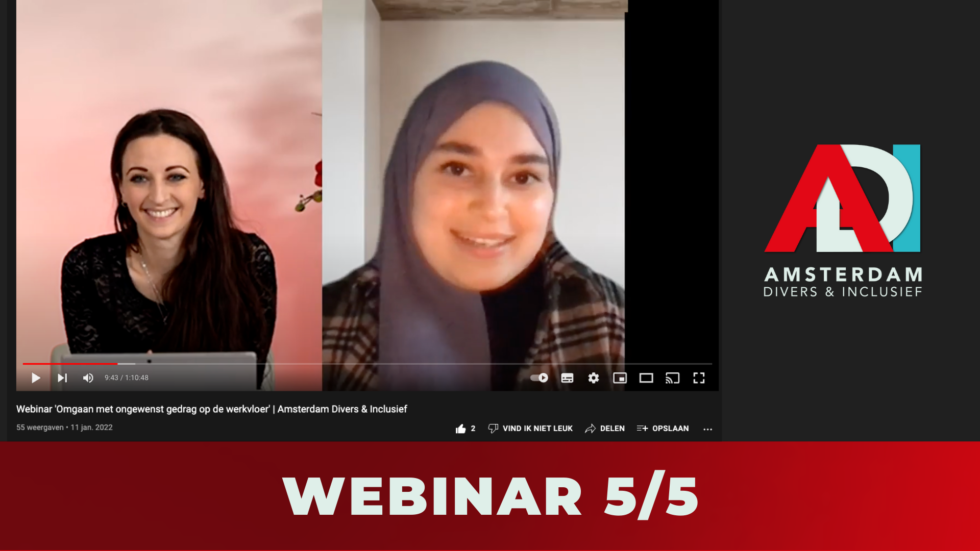
On Thursday 9 December, Amsterdam – Divers & Inclusive organised its fifth webinar for SMEs in the city of Amsterdam. This webinar zoomed in on countering undesirable behaviour in the workplace. Undesirable behaviour can occur in the form of transgressive behaviour or discrimination, but also often takes more subtle forms such as ‘jokes’ and exclusion. How do you tackle this as an employee or employer?
Watch the entire webinar back now!
[1:42] ‘Inappropriate behaviour – what is it and what does it do?’
During this webinar, Sarah Elbadr-Boers, quartermaster of ADI, gives an overview of the different forms of undesirable behaviour and their potential impact on employees and bystanders. She also touches on the steps you can take as employees when faced with undesirable behaviour.
[8:38] ‘Micro-aggressions are like multiple mosquito bites’
Gamze Yüce, a student and employee at the Hogeschool van Amsterdam, takes us through her personal experiences with microaggressions during her studies and early working life. Gamze makes it clear that comments based on prejudice, even without malicious intentions, have a negative impact in the long run. What did it do to her, what did she learn from it, and how does she deal with it today?
[25:42] ‘Most people don’t know how, and whether, to take action’
Laura Adèr, founder of agency Fairspace, gives participants some easy-to-remember and apply methods for when you are a bystander to unwanted behaviour.
[30:30] ‘Inappropriate behaviour is just bad for your business’
Sarah Elbadr-Boers touches on what the effects of undesirable behaviour actually are for the company. Indeed, besides the unpleasant effects on the individual, undesirable behaviour also creates a range of negative consequences for the employer, such as reduced productivity and increased absenteeism and turnover.
[33:27]’Best Practice: Give a voice to employees themselves’. Ahssen Haroon, strategic advisor at Amsterdam UMC, talks about how he ensures structural attention to undesirable behaviour in the workplace. He talks (among other things) about a special podcast for a by employees. Listen to the podcast now! 🔽
[51:20]’It’s really important to make reports, otherwise you won’t break the patterns’
Merie Polkamp of Meldpunt Discriminatie Regio Amsterdam takes us through the work of the MDRA and explains the lessons learned through a case study. In doing so, she discusses what can be done in that case by victim, bystander and employer.
